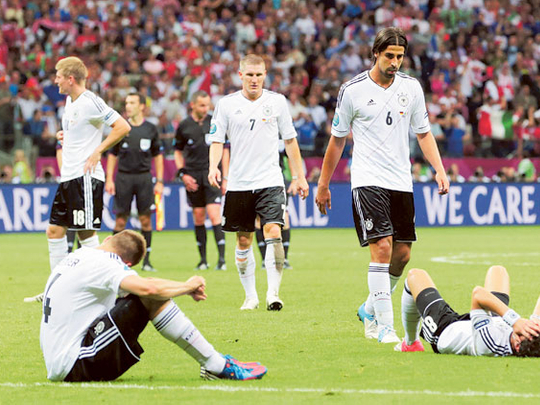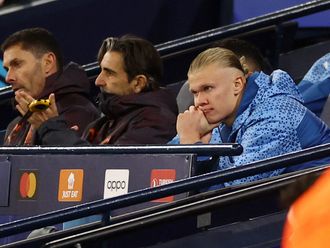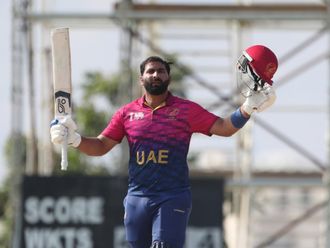
1. England desperately need help to get over their penalty hoodoo.
This a depressingly familiar refrain, chimed out after every major football tournament. But then again, England go out of every tournament due to penalties, having suffering their fifth exit in a row on spot-kicks since 1996 after Italy ousted them in the quarter-finals this time around. No amount of practice will cure this intractable issue, that’s glaringly obvious, as England players patently have a mental block when it comes to scoring from 12 yards. It’s therefore essential the Three Lions employ a psychologist to help them overcome their spot-kick jitters, as advocated by ex-England midfielder Gareth Southgate. And Southgate should know, as he famously missed from the spot in the Euro 1996 semi-final against Germany.
2. Germany are still a work in progress.
As their lacklustre defeat to Italy in the semi-finals illustrated, Germany have some way to go before they can be considered an all-conquering force. The developing defensive partnership of Holger Badstuber and Mats Hummels creaked against the Italians, for instance, but the inexperienced pair will be better for the experience. Expect a youthful and vibrant Germany, galvanised by emerging stars such as Mario Götze, Marco Reus and Andre Schürrle, to be a force to be reckoned with at the World Cup in 2014.
3. The Trap door should open for Ireland’s coach.
Hopes were high that Ireland could emulate former glories under their vastly experienced Italian coach Giovanni Trapattoni — or at least cause a shock. But ‘Trap’s’ reliance on an old-fashioned 4-4-2 formation resulted in his men being overwhelmed in midfield against Spain, suffering the second of three consecutive, comprehensive defeats. Admittedly Trapattoni was handicapped by a limit squad full of journeymen, but this tactical dinosaur’s outdated approach and failure to stir the famed fighting spirit of the Irish means it’s time for the gnarled veteran to call it a day.
4. Mario Balotelli has dispelled the view he is not international class.
Prior to the tournament, widespread doubts persisted about the temperamental striker’s character and ability to perform on the biggest stage. But Balotelli answered his legion of critics and repaid Italy coach Cesare Prandelli’s faith in him with three goals in the tournament prior to the final in some explosive, match-winning performances. What’s more, his shirtless, flexed-muscles celebration after his thunderous second goal against Germany in the semi-final will remain one of the iconic images of the event.
5. Increasing the amount of teams in Euro 2016 will diminish the quality on offer.
By and large, Euro 2012 has featured high-quality games in its current 16-team format. In four years’ time, though, Euro 2016 will feature 24 teams, Uefa has decreed. But if it ain’t broke, why fix it? The strength of the tournament lies in the fact that it features the cream of Europe — although Ireland were an anomaly this year. Increasing the teams will cheapen the tournament, lead to a decline in quality and result in more embarrassing mismatches on a par with Spain’s rout of Ireland.












